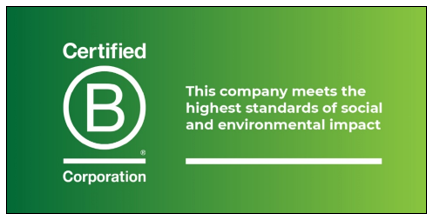3 Red Flags to Avoid Losing Millions on Startups
 |
| By Chris Graebe |
As you probably already know, I love startups, investing in startups and talking to founders. I especially love educating new investors.
That’s because private equity can be tricky, and it’s not good to go into it mindlessly.
So many of us want to be able to put $100 into a project one day … and talk about making millions the next. But with so many moving parts, it’s not that simple and pocketing big bucks won’t happen overnight.
That said, most sound startups will eventually reward patient investors with returns on their investments.
When I begin to search for a startup worthy of my investment, I often use the process of elimination. If a company raises one of my three deal-breaking red flags, I run for the hills and never look back. So should you.

Red Flag No. 1: Startups That Don’t Solve Problems
Simply put, a startup that isn’t solving a problem … is a problem.
Look at it this way …
Let’s say you need someone to fix your broken air conditioner. So, you contact a local vendor, but the person who shows up at your door wants to wash your windows.
Sure, you’ll be able to see the great outdoors better, but it does nothing to relieve you from the blistering, summer heat.
There’s no way you’re handing over a single dime to someone who doesn’t solve your most compelling problem. However, if a veteran AC specialist had come knocking, spent time explaining what’s wrong and then handed you a bill, you’d be more than happy to fork over money. In fact, you’ll likely use that person’s services again.
Earlier this week, I shared a great example of a problem-solving startup I invested in, ThisWay Global. Prior to becoming the company’s CEO and founder, Angela Hood discovered that prospective employers were overlooking her because she was a female architect.
The phone never rang when she used her first name. However, once she emphasized Hood instead of Angela, the calls rolled in and confirmed the bias she exposed.
Of course, her battle against bias in the hiring process didn’t stop there. Hood partnered with Alphabet’s (GOOGL) Google and International Business Machine (IBM) to create ThisWay Global and an AI tool and software that corporations leverage today to solve this specific and widespread problem.
On the flip side, here’s an example of a wannabe startup with a product in a highly competitive environment that didn’t offer any unique solutions.
You’re probably familiar with logging onto Zoom Video Communication’s (ZM) Zoom Meetings platform or Microsoft’s (MSFT) Teams for a remote work meeting and seeing a mysterious AI robot jump on the call and take notes the entire time.
Well, in 2020, during the throes of the pandemic and lockdowns, nearly every Tom, Dick and Harriet used virtual meeting tools. Some used them to communicate with friends and family. Mostly, though, it allowed the new remote workforce to meet online and face-to-face and keep businesses running as close to normal as possible.
Having a note-taking AI bot join the meeting made the experience that much better.
As often happens, the demand for these tools spiked during the pandemic.
So, the startup I referred to earlier faced two problems when it launched its version of a virtual meeting tool with a note-taking AI bot.
First, many companies had the same idea, making it a very crowded and competitive space. Second, this startup’s product didn’t promise any special or additional features that would differentiate it from all the others.
The leadership team’s inability to find a way to carve out a niche in the market ultimately resulted in failure.
Red Flag No. 2: Founders with Too Much Pride, Little Humility
Successful founders need a good dose of instinct and confidence to step into the startup world and build something that people actually need. Taking smart risks and believing in what they offer can go a long way.
However, pride can and often does cause the downfall of many startups. Too much of it can manifest as cockiness and a reluctance to accept constructive criticism and be flexible.
Now, I’ve invested in many companies, but one that I think truly embodies the idea of humility is a company called Next Door Photos. I love the founders, I love their humility and I love their mission.
On the profit-making side of the business, Next Door hires people across the country to take photos for real estate listings. This unique strategy helps agents hook up with photographers familiar with their territories and markets. The one-day turnaround also speeds up the property-listing process and, ultimately, the sale of homes.
But what I like most about Next Door, and what separates it from others, is its partnership with companies making an impact on human trafficking and exploitation. Every single photo shoot provides approximately four hours of employment to editors who have been rescued.
As a result, the company earned a B Corp Certification for its socially minded approach and reinvestment of partial profits into the communities it supports.

Next Door’s founders serve as great examples of being humble while still profiting and doing good for others along the way.
That’s in stark contrast to another company I nearly invested in — but I recognized just in the nick of time that the founders showed too much arrogance and pride. That convinced me that they thought more about themselves, their money and feeding their agenda. As a result, I, the investor, came second.
Red Flag No. 3: Companies Unable to Scale Likely Won’t Profit
Finally, the last red flag refers to a company with no options for scaling. Without a path to expand, companies reduce their ability to reach their Total Addressable Market (TAM).
And without a market that’s large enough to sustain and grow a company, it may capture small wins along the way. However, it won’t lead to a huge path to profit down the road. That’s not a very attractive scenario for investors who want returns on their money.
I had the opportunity a couple years ago to speak to a founder looking to raise capital for a beverage … specifically an alcoholic beverage. She ran into a lot of brick walls. And despite her best efforts, she couldn’t gain any traction.
One day, I decided to give her my two cents. I told her that beverage companies are one of the hardest to build on the planet. Plus, to market CBD- and alcohol-infused products would be like climbing a steep mountain. She’d be against the big boys with super deep pockets like Anheuser-Busch InBev (BUD).
She had slim odds of ever taking them down. I told her that if she isn’t confident about the company, she probably shouldn’t take money from investors. It’s best to find startups that are easier to build with the potential to scale without pumping millions and millions of dollars into it to see if it has the potential to succeed.
I had a similar experience recently after a friend told me he was considering investing in an escape room in Orlando, Florida. In a given year, the company made around $80,000 in profits.
The way the company set up its business provided really low margins and not enough scale to grow consistently. I told him it may become a great lifestyle business but not one that I would consider funding.
Statistics show that nine out of 10 startups fail. So, it’s essential that you conduct due diligence when scoping out potential investment opportunities. If you know what to look for — and what to run from — your chances of finding a successful one grow exponentially.
Until next time, my friend!
Happy hunting,
Chris Graebe

